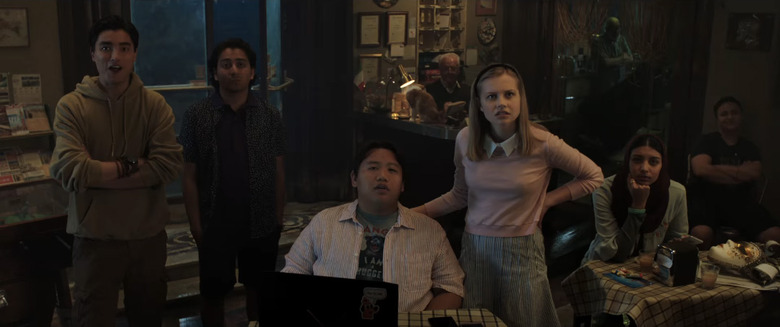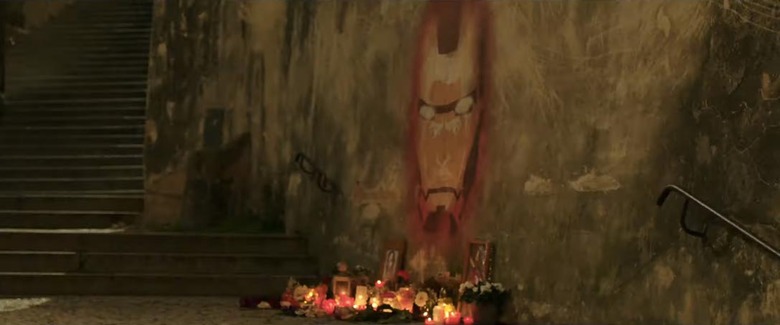How 'Spider-Man: Far From Home' Truly Closes Out Marvel's Phase 3
It's been more than three years since the Marvel Cinematic Universe's Phase 3 kicked off with Captain America: Civil War, the film that introduced Tom Holland's version of Spider-Man to the world. It's fitting, then, that Phase 3 has now officially come to an end with Spider-Man: Far From Home.
A lot has happened since Civil War – The Avengers experienced an unprecedented upheaval in the wake of their battle with Thanos, losing key members along the way; we met characters like Black Panther, Doctor Strange, and Captain Marvel; and Holland already holds the record for the most times anyone has played Spider-Man on the big screen. But here's how Spider-Man: Far From Home finally closes the book on Phase 3, by far the longest and most consequential phase of the MCU thus far.
Warning: spoilers ahead.
Aftermath of Endgame
By crafting a satisfying conclusion for the films that came before it, Avengers: Endgame essentially left a whole new world for the future MCU movies to explore, and Far From Home is the first film with the opportunity to do that. The film wastes almost no time addressing that fact: one of the first things we see is a humorous "In Memoriam" segment from the Midtown High School news crew that pays homage to the fallen heroes of Endgame and recaps how the world has changed since Thanos's devastating snap (now known as "the Blip") was reversed. The film briefly touches on the ramifications of what happened when the Vanished returned to this world, but it doesn't have enough time to really engage with the effects (physical, emotional, psychological) that would have on the world's populace. Will any future film in the Marvel Cinematic Universe slow down enough to fully explore these ideas, or are this movie's few quick jokes all we're going to get?
Interrogating Tony Stark’s Legacy
These Spider-Man movies have become fascinating opportunities to explore the legacy of Tony Stark. During Peter's flight overseas, he scrolls through the viewing options on the plane and notices a documentary called Heart of Iron that presumably paints Iron Man as an unflappable hero. (Peter doesn't watch it.) But Tony's story wasn't so clean-cut: after all, this was a man who started out manufacturing weapons for the government. Michael Keaton's Vulture, the villain in Spider-Man: Homecoming, was directly affected by Tony's decisions in the wake of The Battle of New York, and ultimately turned to a life of crime as a result. This movie picks up that thematic thread by having Mysterio and his crew be another bunch of disillusioned workers who lived in Stark's shadow; now that he's gone, they're looking to fill the void – even if they have to concoct elaborate magic shows to do it. "He was my best friend," Jon Favreau's Happy Hogan says of Tony in this movie, "but he wasn't perfect." Far from it, in fact, and it's endlessly interesting to me that of all of the connected films of the MCU, it's these Spider-Man solo movies that have served as such fertile ground for examining one of the universe's most larger-than-life heroes.
A New Phase of Peter’s Life
Peter was one of the only MCU superheroes who preferred to keep his true identity a secret, but now that Mysterio has blurted that secret to the entire world (in a twisted reversal of Tony's admission at the end of the original Iron Man), Peter finds himself in uncharted territory. Phase 3 represented the early stages of Peter Parker's evolution as a hero, but his identity becoming public has thrust him into a new era. Holland will likely bring his boyish charm to this role for several years to come, but Peter's not a kid anymore. And now that Tony's gone for good, Spider-Man will need to clear his name and then step up to join Black Panther, Doctor Strange, Captain Marvel, and other Phase 3 heroes as new threats inevitably appear. That's quite an arc for a character who first appeared in the MCU just three years ago.
Spider-Man: Far From Home is in theaters now.



